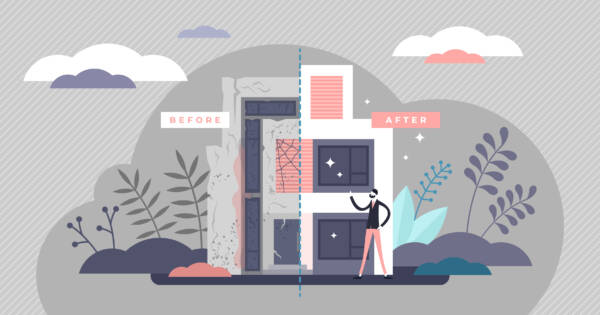Even if you previously had a mortgage application rejected, you may want to try again. Fannie Mae recently announced changes to their underwriting process. The new calculations will include your history of rental payments. That’s great news for anyone that’s been a reliable tenant for years while saving for a house. This new process should make it somewhat easier for renters to qualify for a mortgage. Indeed, Fannie Mae calculates that roughly 17% of previously rejected borrowers would now be approved. That’s based solely on adding their rental history to the equation.
Why Rent History Matters
If you’re a Millennial, there’s a good chance you’re stuck renting a place to live while you watch house prices continue to soar. It can certainly be discouraging. You, like millions of others your age, are probably wondering if you’ll ever be able to buy a house. You probably also end up frustrated by the math of everything. Perhaps you’ve seen this viral Twitter meme:
https://twitter.com/KatMeanJean/status/1361435115495190529
It doesn’t make sense, right? You’ve been paying your rent on time for years. So why don’t banks think you can afford to pay the same amount for a mortgage? The answer actually lies in your credit score.
Credit Scores and Rent
Unfortunately, the three major credit bureaus — Equifax, TransUnion, and Experian — hardly ever receive information from landlords about rental history. So when potential mortgage lenders look at your credit score, there’s no information for them to use. And since your credit score is one of the biggest factors when applying for a mortgage, not including your rental history may sink your application quickly.
Side note: you can request that your rental payments get included in your credit score. You may have to speak to your landlord directly, or contact the credit bureaus. Or both. It’s worth your time, though. A study by Experian found that three-quarters of people who had their rent history added to their credit profile saw their credit scores jump between 11 and 29 points.
How to Report Your Rent History
As we said, you can start by contacting your landlord and the credit bureaus. However, you can also look into services that exist solely to make sure your rental history is part of your credit score. The most prominent of these are Plastiq and RentMoola. While these services will probably help your credit score, you should know they aren’t free. They take a small cut of every payment, usually around 2-to-3%. It may not seem like a lot, but it can quickly add up to thousands of dollars every year.
Are these services worth it? Like we’ve said many times before on WalletGenius, the answer is “it depends.” If your credit score needs a bump, it could be worth it in the short term. However, you should remember to eventually stop paying these services once your desired credit score (or financial goals) are met.
When Do These New Rules Start?
Fannie Mae announced that they will start considering rent history on September 18, 2021. The process is mostly automated, meaning their approval/rejection calculations will automatically include your rental history. That’s assuming, of course, that they can find it. So be sure to ask about making sure your rental history is considered on your next mortgage application.
It’s worth pointing out that Fannie Mae doesn’t handle the loans by themselves. Their system approves potential borrowers, who are then passed on to private lenders.
What Should You Do?
If you’re on the verge of applying for a mortgage after years of renting, you might want to wait a month. After Sept. 18, you’re more likely to be approved if you can include years of consistent rent payments as part of your mortgage application. You may also get more favorable interest rates, if your credit score improves as part of the same process.
If you recently had a mortgage application rejected, don’t despair. Take the time to get your rental history attached to your credit score. Then, try re-applying after Sept 18 (or wait a few months, to be safe). You could very well be approved next time, once the banks see that you’ve been able to handle all those rent payments over the years.








